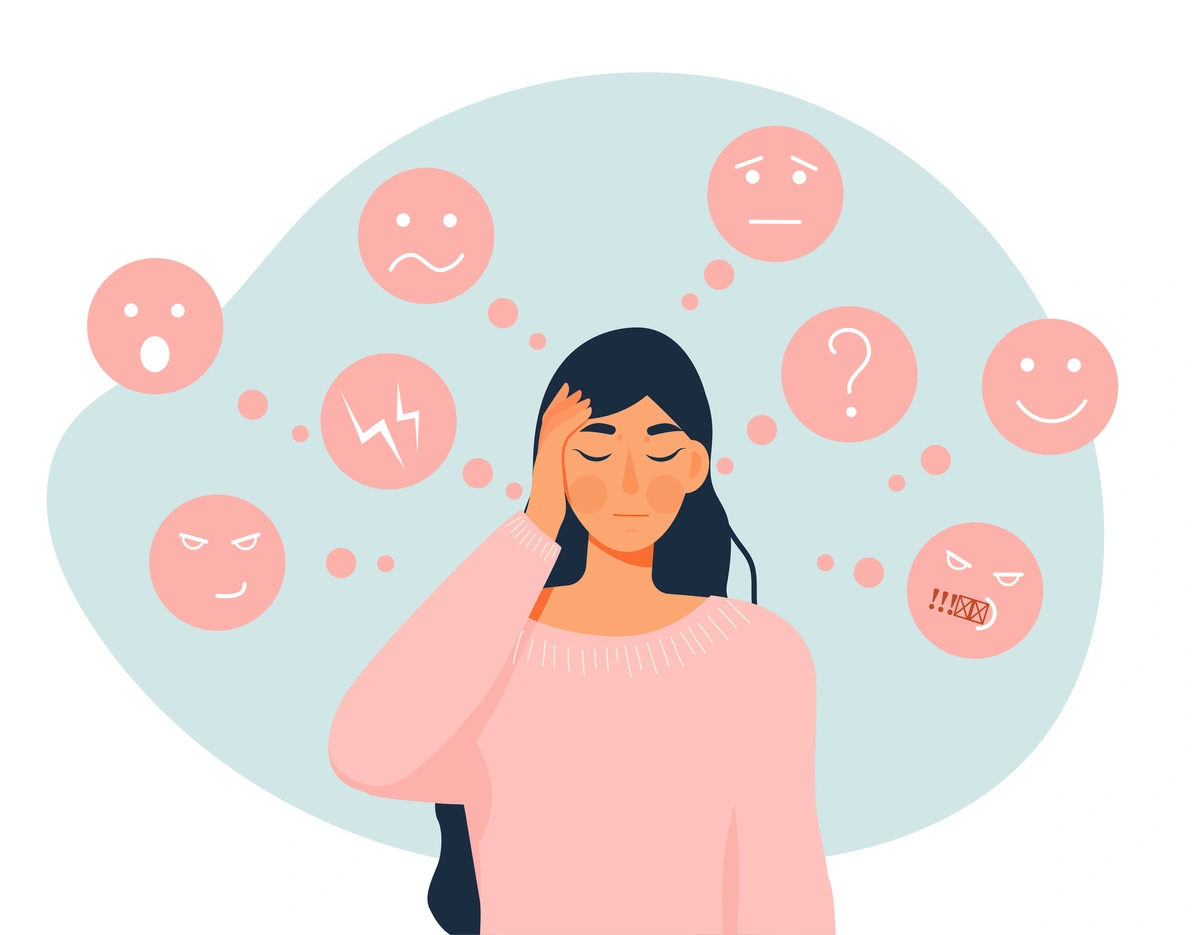Commonly Misdiagnosed Mental Illnesses: Understanding the Impact

October 29, 2024
Mental health diagnoses are foundational for providing appropriate treatment and support. However, misdiagnosis is a significant concern that can lead to prolonged suffering, ineffective treatment, and a lack of progress for those affected. Certain mental health disorders are more commonly misdiagnosed than others due to symptom overlap, varying presentation, and diagnostic complexities. Some of the most frequently misdiagnosed mental illnesses include:
Bipolar disorder is often misdiagnosed as major depressive disorder, particularly in cases of bipolar II, where hypomania (a less intense form of mania) is present but not always recognized. This is largely due to the overlapping depressive symptoms; individuals may seek help during depressive episodes while their hypomanic symptoms go unnoticed. The consequences of this misdiagnosis can be serious, as antidepressants typically prescribed for major depression may trigger manic episodes in individuals with bipolar disorder.
2. Borderline Personality Disorder (BPD)
Borderline personality disorder is another condition frequently misdiagnosed, often as bipolar disorder or depression. Both BPD and bipolar disorder share symptoms like mood instability and impulsive behavior, making it challenging to differentiate them. BPD is more focused on unstable relationships, self-image, and intense emotional responses, while bipolar disorder is characterized by episodic changes in mood lasting for days or even weeks. Misdiagnosing BPD as bipolar disorder can lead to the use of medications that don’t effectively address the core emotional dysregulation typical of BPD, leaving individuals feeling misunderstood and untreated.
3. Attention-Deficit/Hyperactivity Disorder (ADHD)
ADHD is frequently misdiagnosed, particularly in adults, where symptoms may overlap with anxiety, depression, or even personality disorders. In adults, ADHD symptoms often manifest as issues with focus, organization, and impulsivity, which can be mistaken for personality traits or consequences of stress and anxiety. When ADHD is misdiagnosed, individuals may miss out on effective behavioral interventions or stimulant medications, which can dramatically improve their quality of life.
4. Post-Traumatic Stress Disorder (PTSD)
PTSD symptoms, such as hypervigilance, avoidance, and mood disturbances, overlap with other disorders, including depression and generalized anxiety disorder (GAD). Since PTSD is rooted in a response to traumatic events, it is sometimes overlooked when trauma history isn’t explicitly explored. Misdiagnosing PTSD can lead to an incomplete treatment plan, as effective PTSD treatments often include trauma-focused therapies, which are not typically emphasized in treating depression or GAD.
5. Autism Spectrum Disorder (ASD) in Adults
Autism, especially in women and high-functioning individuals, is frequently misdiagnosed. Adults with ASD may be misdiagnosed with social anxiety disorder, ADHD, or personality disorders due to overlapping symptoms like social difficulties and atypical communication patterns. This misdiagnosis often means that these individuals don’t receive tailored support that can significantly improve their day-to-day functioning, such as occupational or behavioral therapies focused on social skills and sensory processing.
6. Generalized Anxiety Disorder (GAD)
GAD is commonly misdiagnosed as panic disorder, social anxiety disorder, or even major depressive disorder due to overlapping symptoms of worry, tension, and sleep disturbances. GAD involves chronic, excessive worry across various aspects of life, often for six months or more, while panic disorder is characterized by sudden and intense episodes of fear. Properly distinguishing GAD from other anxiety-related conditions is critical for effective treatment, as GAD often responds well to cognitive-behavioral therapy (CBT) and certain anxiety-focused medications.
7. Major Depressive Disorder (MDD)
MDD is one of the most commonly diagnosed mental health disorders but is often mistaken for other illnesses, such as bipolar disorder or dysthymia (persistent depressive disorder). MDD shares symptoms like fatigue, low mood, and loss of interest in activities with these disorders, but MDD is marked by prolonged depressive episodes. Misdiagnosis of MDD, especially when bipolar disorder is the true diagnosis, can lead to treatment plans that don’t address the root of mood cycling, potentially worsening symptoms over time.
Why are misdiagnoses so common?
Several factors contribute to the prevalence of misdiagnoses in mental health care:
- Symptom overlap: Many mental health disorders share common symptoms, such as mood changes, sleep disturbances, and attention issues, which can make it difficult to differentiate one disorder from another.
- Individual variation: Mental health disorders can manifest differently across individuals. For instance, symptoms in men and women may present differently in conditions like ADHD and ASD.
- Incomplete assessments: Sometimes, mental health diagnoses are based on limited information or brief consultations, which can lead to missed details that could clarify a diagnosis.\
- Diagnostic challenges: Some disorders, like PTSD or ASD, require specific inquiry about past trauma or developmental history that may not come up unless directly explored.
The importance of an accurate diagnosis
An accurate diagnosis is crucial for receiving effective treatment and avoiding the frustration of ineffective care. Tools like structured psychological assessments can support healthcare providers in making more accurate diagnoses, as these assessments offer deeper insights into a person’s mental health. Platforms like MindMetrix are dedicated to improving diagnostic accuracy and bridging the gap in mental health care with data-driven insights, empowering individuals and their providers with accurate results to help understand their mental health more comprehensively.
Sources
- Hannah Owens, L. (2024, July 23). What they *don’t* tell you about living with an incorrect mental health diagnosis. Verywell Mind. https://www.verywellmind.com/living-with-an-incorrect-diagnosis-8678914
- Sussex Publishers. (n.d.). Bipolar disorder. Psychology Today. https://www.psychologytoday.com/us/basics/bipolar-disorder
- Fruzzetti, Ph.D., A. E. (2024, February 7). Why Borderline Personality Disorder is Misdiagnosed. NAMI. https://www.nami.org/advocate/why-borderline-personality-disorder-is-misdiagnosed/
- Hyatt, V. T. (2022, March 24). ADHD in adults: How to recognize the signs. Healthline. https://www.healthline.com/health/adult-adhd#takeaway
- Pearson, C. (2021, July 8). 5 mental health conditions that are way underdiagnosed. HuffPost. https://www.huffpost.com/entry/mental-health-underdiagnosed_l_60e5dd5ae4b0d00882ade4ec
Ready to boost your practice?
Try 3 complimentary assessments on us.